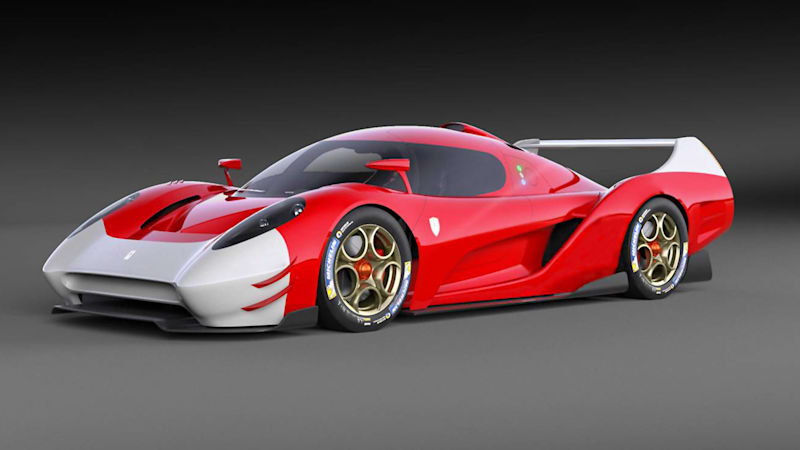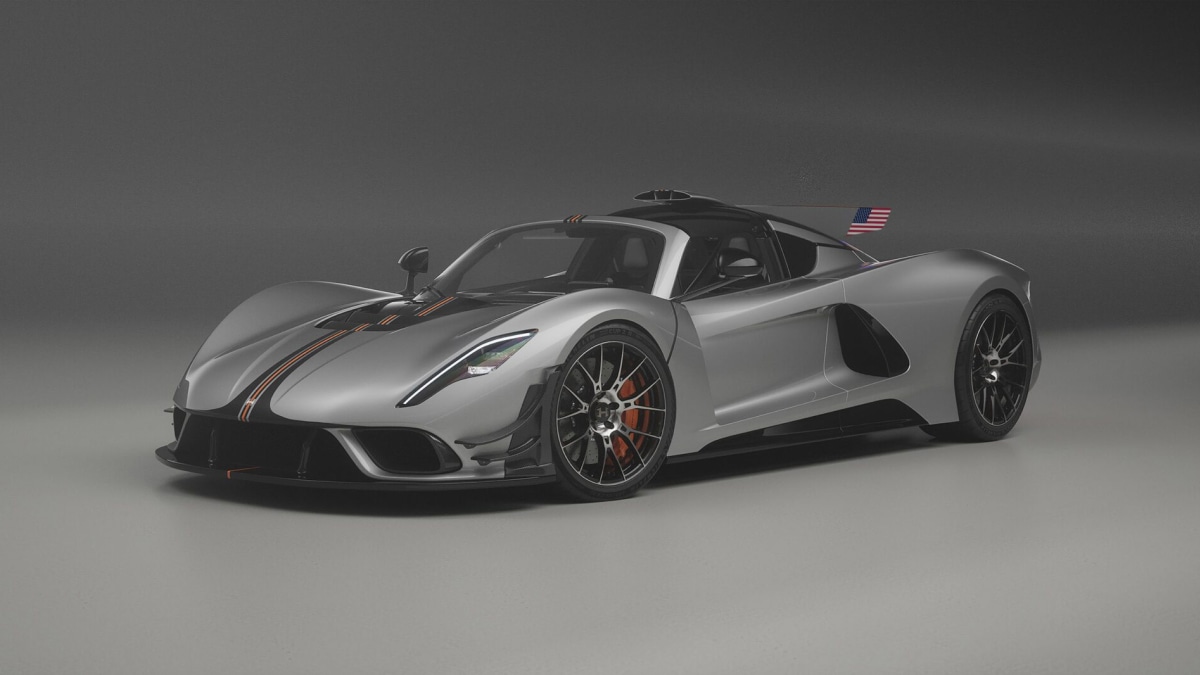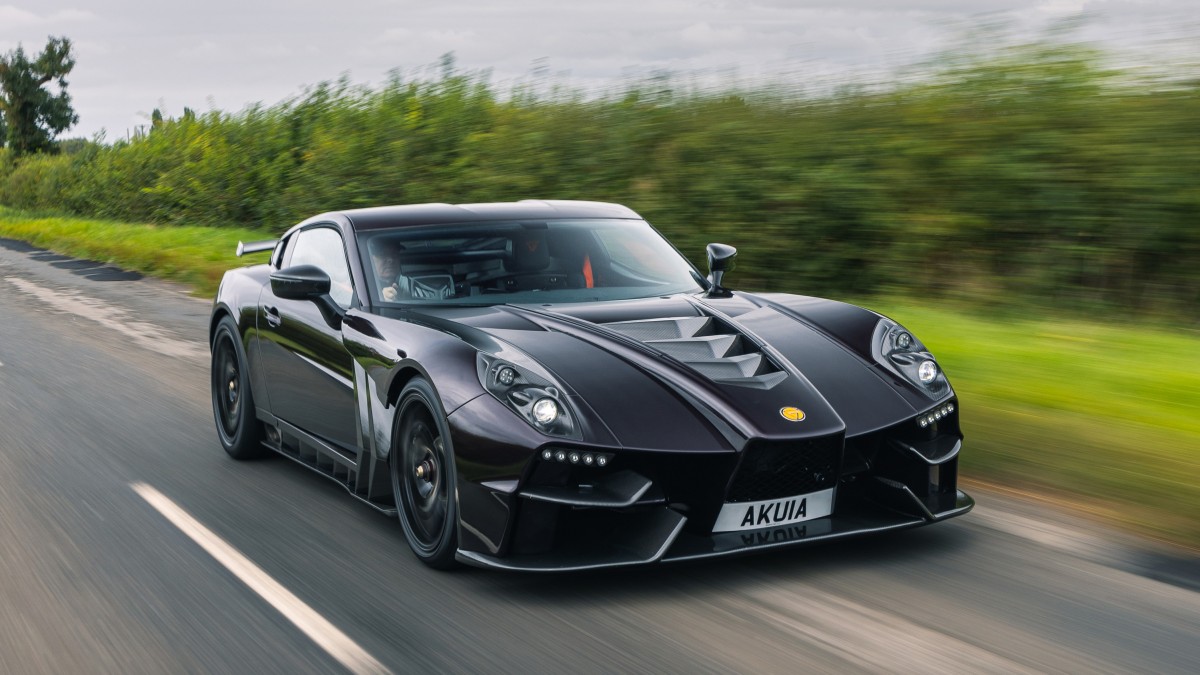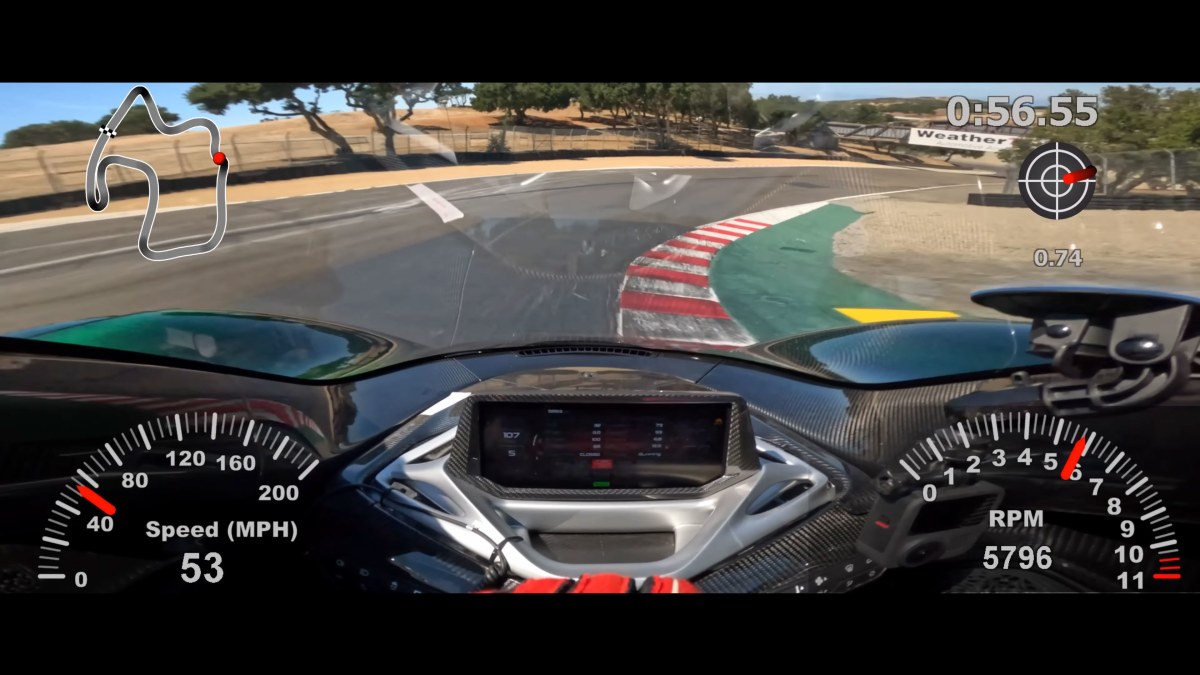Scuderia Cameron Glickenhaus began the long tease to its SCG 007 LMP1 hypercar with a set of sketches in June 2018 that clearly incorporated cues from the SCG 003. Refining that original sketch for 18 months produced a longer, smoother design with pontoon-like front fenders and a rear wing seamlessly integrated into a more tapered rear end. The first powertrain mentioned for the 007 was a twin-turbo V6 with 800 horsepower and a 200-hp hybrid component. In the WEC’s Hypercar class where SCG will try to win Le Mans outright, regulations cap maximum combined output at 740 horsepower, and electric assistance can only power the front wheels above 80 miles per hour. Late last year, Jim Glickenhaus told us SCG decided to shed the hybrid portion, since “We can make max allowed HP from our ICE, and our powerplant will be lighter and less complex.” A new announcement last week means the end of the V6, too, SCG partnering with French engine developer Pipo Moteurs on a “whole new custom V8 twin-turbo engine.”
Pipo Moteurs opened for business in 1973, and has a track record of wins mainly in World Rally Championship with teams like Peugeot and Ford, and European hillclimbing with BMW. We expect the 007 to mark the first time SCG takes a V8 into top-level racing; the SCG 003 road car was powered by BMW’s 4.4-liter twin-turbo V8, but the road car housed a 3.5-liter twin-turbo V6 from Honda.
SCG plans to get the 007 down near the WEC’s minimum weight of 1,100 kilograms (2,425 pounds). Evo reports that the first wind tunnel tests are finished, the engineering program scheduled to continue through to summer 2020. Subsystems should enter production in August 2020, the first shakedown runs happening a month later. The math so far shows the hypercar regulations enabling laps times of three minutes and 30 second around the Circuit de la Sarthe, about 15 seconds off the best qualifying lap for the pole-sitting Toyota Gazoo Racing TS050 Hybrid at Le Mans last year, 13 seconds adrift of the fastest lap set during the race by the second-place Toyota.
Next year’s a long way away, though. The hypercar class only has three entries for the moment, Toyota, SCG, and ByKolles scheduled to run after Aston Martin dropped out, and many wonder if that will be enough to keep a top-level worth running. The ACO and IMSA announced a new class to integrate the former’s LMP1 with the latter’s DPi into a new category possibly called LMDh, the first race the 2022 Rolex 24 at Daytona. Lamborghini had been examining a hypercar entry and Peugeot had committed, but Peugeot pulled out after the LMDh announcement. Being able to race internationally and run Daytona, Sebring, and Le Mans with one car is a huge lure to automakers. It’s not clear yet if the hypercar rules can be shoehorned into the new category, of if ACO will want to try.
Assuming the 007 makes it to Le Mans at some point, SCG will produce at least 20 roadgoing versions to satisfy homologation rules, priced around $2.1 million, roughly the same price as the SCG 003.
Related Video:




